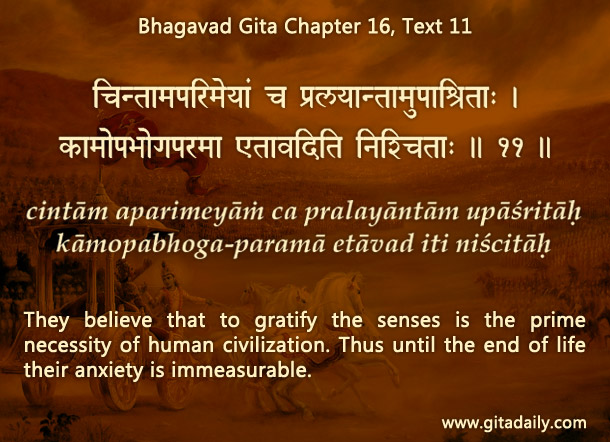Anxiety is a defining characteristic of our present existence. Specific anxieties have specific causes that can and should be addressed. However, such measures can address circumstantial anxiety alone, not existential anxiety.
Circumstantial anxiety such as uncertainties about reaching on time for a flight can be addressed by practical measures such as starting earlier or avoiding crowded roads.
But beyond such circumstantial anxieties, we all face a deeper level of anxiety: existential anxiety: Will our existence end at any moment with death? What will happen to us after death? Even while we are living, does our existence count at all? These questions gnaw at us, creating a debilitating emptiness and meaninglessness within us.
This foundational anxiety can be addressed only through spiritual knowledge. The Bhagavad-gita helps us logically and experientially understand that we are at our core eternal spiritual beings, and that we are on a multi-lifetime journey of spiritual evolution. Whatever we do in this lifetime, it contributes to our overall karmic destiny. And if we strive to grow spiritually, then that counts to our eternal spiritual credit. So, only with a spiritual vision of life does our existence become meaningful and purposeful. When we thus address our existential anxiety with spiritual knowledge, then we get an inner stability that helps us to cope with circumstantial anxieties more calmly and effectively.
When we are rowing in a boat, we may face anxiety: “What if strong waves capsize the boat?” But if we don’t know where we are meant to go, then that is a far greater anxiety. Gaining that knowledge of destination makes our fighting against the waves purposeful. Similarly, our material efforts to overcome circumstantial anxieties become meaningful when we harmonize them with our efforts for spiritual growth which address our existential anxiety.
To know more about this verse, please click on the image
Explanation of article:
Podcast:


Thanks a lot Prabhu ji for presenting it so nicely 🙂